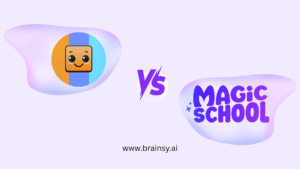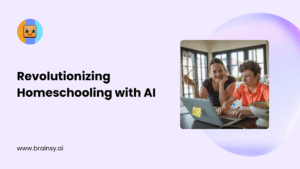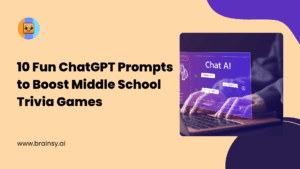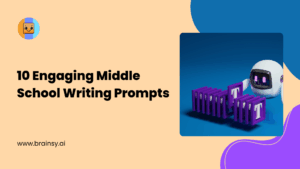Education is experiencing a monumental shift, thanks in large part to the advent of artificial intelligence (AI). This transformative technology is reshaping not just industries but also redefining education and how we approach lesson plans. In this comprehensive exploration, I’ll delve into the world of AI-driven lesson plans, a revolutionary tool that promises to empower educators like never before.
Introduction to AI-Driven Lesson Plans
The integration of AI into education represents more than just a trend; it’s a necessary evolution. Traditional lesson planning, foundational as it may be, can be time-consuming and sometimes lacks the adaptability required in today’s fast-paced educational environments. AI-driven lesson plans emerge as a beacon of innovation, offering a dynamic and tailored approach to education that keeps pace with the needs of both teachers and students.
At its core, AI for teachers‘ lesson plans represents a fusion of technology and pedagogy, aiming to enhance the educational experience. These smart lesson plans, generated through algorithms and data analytics, are capable of customizing content to meet the diverse needs of students. It’s an approach that not only streamlines preparation but also enriches teaching methodologies, making education more effective and personalized.
The journey into AI-driven lesson planning is an exciting venture, signifying a move towards an educational framework where teachers are supported by intelligent systems. This enables educators to focus more on the art of teaching and less on the logistics of lesson preparation, enhancing the quality of education.
The Benefits of Using AI for Lesson Planning
Unlocking Convenience with AI Lesson Plan Formats
Using AI for lesson planning offers a plethora of benefits, revolutionizing the way teachers prepare and deliver their curriculum. One significant advantage is the accessibility and convenience it provides in various lesson plan formats for teachers.
Seamless Access to PDF Lesson Plans
Whether teachers prefer traditional written plans or digital formats, AI-powered tools can generate lesson plans in various formats such as PDF, templates, or even interactive online formats. This flexibility caters to the diverse preferences and needs of teachers and ensures that they can easily access and utilize lesson plans in a manner that suits their teaching style.
Diverse Examples and Templates for Teachers
AI-powered lesson planning tools offer teachers access to a wealth of lesson plan examples and sample lesson plans. Whether teachers are looking for inspiration, guidance, or a starting point for creating their lesson plans, AI can provide a vast repository of lesson plan examples across different subjects and grade levels.
Enhancing Lesson Plans with Data-Driven Insights
Furthermore, AI enhances the quality and effectiveness of lesson plans by incorporating data-driven insights and best practices. For example, AI algorithms can analyze past lesson plans and student performance data to identify patterns and trends, helping teachers optimize their lesson plans for improved student outcomes.
How AI Can Enhance Teacher Efficiency and Effectiveness
The promise of AI in enhancing teacher efficiency and effectiveness lies in its ability to automate and optimize lesson planning. AI can analyze vast amounts of educational content and identify patterns or gaps that might not be immediately obvious to human planners. This means that lesson plans can be both comprehensive and concise, eliminating unnecessary repetition and focusing on core learning objectives.
Streamlining Lesson Planning with AI-Powered Formats
AI technology offers a revolutionary approach to lesson planning, significantly enhancing teacher efficiency and effectiveness. One of the key benefits of AI is its ability to streamline the creation of lesson plans by providing teachers with access to various formats tailored to their specific needs.
Accessible PDF Lesson Plans for Teachers
With AI, teachers can easily generate lesson plans in PDF format, ensuring convenient access and compatibility across different devices and platforms. Whether it’s planning for English classes or mathematics lessons, AI-powered tools can generate detailed PDF lesson plans that meet curriculum standards and educational objectives.
Customizable Templates for Lesson Planning
Moreover, AI provides teachers with customizable templates for creating lesson plans, allowing them to structure their lessons according to their preferences and teaching styles. These templates serve as valuable guides, helping teachers organize their thoughts and ideas while ensuring consistency and coherence in lesson delivery.
Rich Examples and Resources for Educators
AI-powered platforms also offer a wealth of examples and resources for teachers, including sample lesson plans and instructional materials. Whether teachers are looking for inspiration or practical guidance, AI can provide a vast repository of resources tailored to their subject area and grade level.
Optimizing Lesson Plans with Data Insights
Furthermore, AI leverages data insights to optimize lesson plans and enhance teaching effectiveness. By analyzing student performance data and curriculum requirements, AI algorithms can identify areas for improvement and suggest personalized strategies for maximizing student learning outcomes.
AI Tools for Creating Lesson Plans
Navigating the landscape of AI tools for lesson planning can be daunting. However, several platforms have emerged as leaders in this space, offering intuitive interfaces and powerful AI capabilities. These tools leverage algorithms to generate lesson plans based on specified criteria such as subject matter, grade level, and learning objectives, making them invaluable assets for educators.
Many of these platforms also incorporate resources like interactive activities, multimedia content, and assessment tools, making the lesson plans not just tailored but also engaging. This integration of AI with educational tools and educational games represents a significant leap forward in how lesson content is created and delivered, enhancing both teaching and learning experiences.
The adoption of these AI tools by educators, in the realm of education and lesson planning, is a testament to their effectiveness. Teachers report not just time savings but also improvements in student engagement and outcomes, highlighting the transformative potential of AI in lesson planning and its impact on educational success.
Free AI Tools for Teachers’ Lesson Plans
For educators looking to explore AI-driven lesson planning without financial commitment, there are several free tools available. These platforms offer basic AI functionalities, enabling teachers to experiment with automated lesson planning and personalized content, providing a glimpse into the future of education.
While these free tools may not have all the features of their paid counterparts, they still provide valuable insights into how AI can transform lesson planning in education. They serve as an excellent starting point for educators curious about integrating AI into their teaching practices, offering a taste of the potential enhancements to educational strategies.
Moreover, many of these free platforms offer upgrade options, allowing teachers to access more advanced features as they become more comfortable with AI-driven lesson planning in education. This flexibility ensures that educators can grow with the technology, adapting it to their evolving needs and enhancing their teaching methodologies.
Best AI Tools for Teachers’ Lesson Plans
When it comes to the best AI tools for teachers’ lesson plans, several platforms stand out for their advanced features and user-friendly design. These tools offer comprehensive solutions, from generating customized lesson plans to providing interactive learning materials and real-time assessment capabilities, making them indispensable for modern educators.
Investing in a premium AI lesson planning tool can significantly enhance the teaching and learning experience in education. These platforms are designed with educators in mind, offering support and resources that go beyond lesson planning to encompass the entire educational journey, thereby elevating the quality of education provided.
Selecting the right AI tool depends on specific teaching needs and goals in education. However, the best platforms share common features: adaptability, ease of use, and a commitment to improving educational outcomes. These criteria serve as a guide for teachers seeking to revolutionize their lesson planning process, ensuring a match with their educational philosophy.
Case Studies: Teachers Using AI for Lesson Plans
The impact of AI on lesson planning in education is not just theoretical; it’s evident in classrooms around the world. Numerous case studies highlight how teachers have successfully integrated AI-driven lesson plans into their teaching strategies, with remarkable results, showcasing the significant benefits of technology in education.
One such case involves a high school teacher who harnessed AI to craft personalized learning paths for each student, enhancing engagement and leading to notable improvements in test scores. Similarly, at a primary school, educators employed AI to create dynamic, interactive lesson plans, sparking increased student participation and a newfound excitement for education, showcasing the power of technology in education.
These real-world examples underscore the tangible benefits of integrating AI into educational practices, offering a source of inspiration for educators eager to leverage technology to elevate their teaching and lesson planning.
Implementing AI-Driven Lesson Plans in the Classroom
The strategic implementation of AI-driven lesson plans in classrooms starts with choosing the right AI tool, one that complements the educational objectives and meets the needs of students. Equally important is training, as teachers need to familiarize themselves with the technology to unlock its full potential in education, ensuring lesson plans are both effective and engaging.
A gradual introduction is advisable, beginning with pilot projects before fully embedding AI into the lesson planning process. Gathering feedback from both students and teachers is crucial during this phase, facilitating necessary tweaks and enhancements to the lesson plans, and ensuring they meet educational goals.
Moreover, cultivating an environment that values openness and innovation is essential, encouraging educators and learners alike to explore the vast possibilities AI brings to education. This cultural shift is pivotal for the successful integration of AI-driven lesson plans, fostering a more dynamic and interactive educational experience.
Overcoming Challenges and Concerns with AI in Education
While the advantages of AI in education are evident, it’s imperative to address challenges such as privacy and data security. Educators and parents demand assurances that student information remains protected, highlighting the importance of a robust privacy policy in educational settings to safeguard sensitive data.
Additionally, ensuring equitable access to AI-driven educational resources is crucial to avoid exacerbating the digital divide. This endeavor extends beyond technology, requiring comprehensive policy and infrastructure support to guarantee accessibility for all students, fostering digital citizenship in education.
Importantly, while AI can significantly enhance educational experiences, it cannot substitute the unique insights, empathy, and motivation that teachers provide. Maintaining a balance between technology and the human touch is essential for maximizing the benefits of AI in education, ensuring that the role of educators remains irreplaceable.
Conclusion: The Future of AI in Education and Its Impact on Teachers
The future of AI in education is not just promising; it’s already taking shape. With the advent of AI-driven lesson plans, the role of educators is transforming. Rather than being supplanted, teachers are being equipped with innovative tools that augment their influence in the classroom, revolutionizing lesson planning and educational delivery.
The incorporation of AI into lesson planning marks just the beginning. As technology progresses, we can anticipate a surge in novel AI applications within the educational sector. These advancements promise to further personalize, engage, and enhance the learning experience, opening new horizons in education.
In embracing AI to enhance teachers’ lesson plans, we’re not just revolutionizing education; we’re preparing for a future where every student has the opportunity to reach their full potential. This journey is not without its challenges, but the rewards—for teachers, students, and the broader education sector—are immeasurable. By integrating AI into the fabric of education, we’re opening doors to innovative teaching methods and learning experiences that can significantly uplift educational outcomes.





